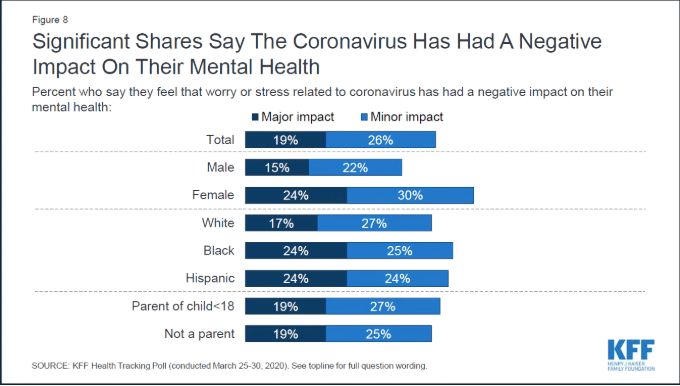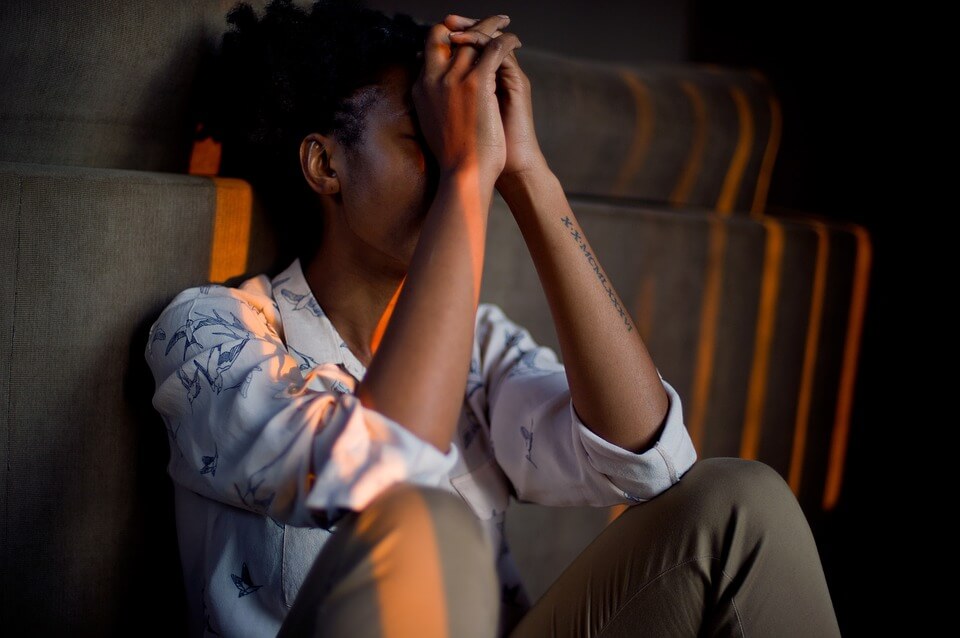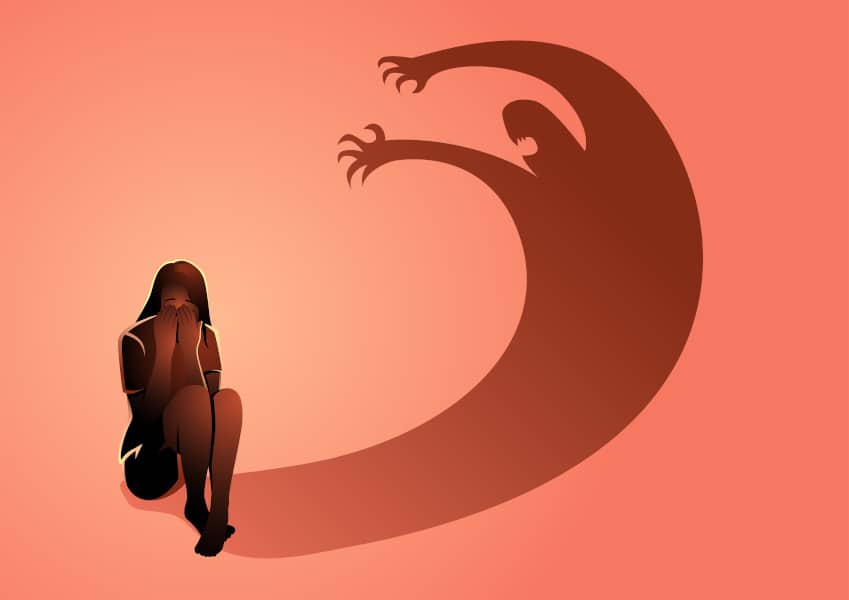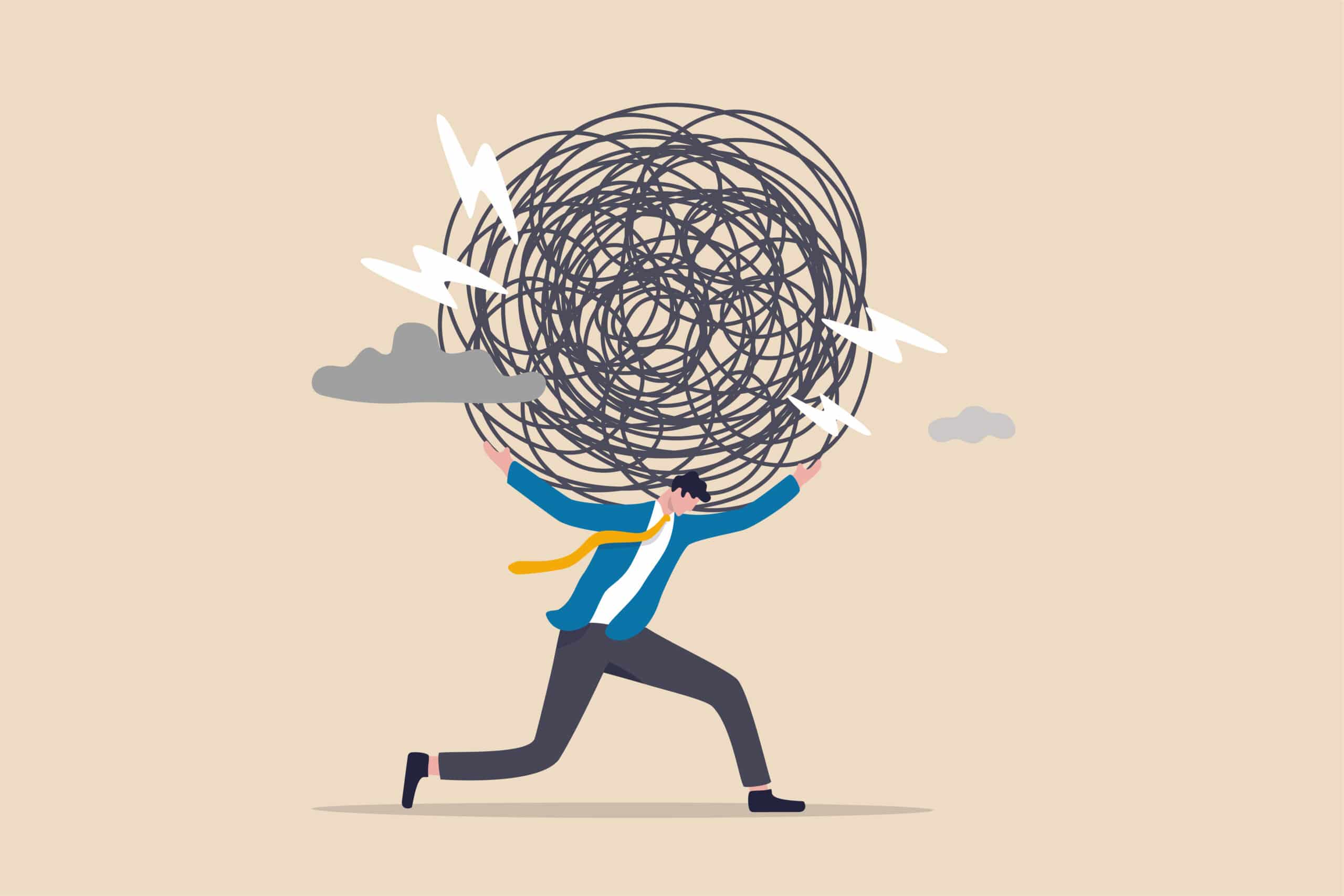With just over 92,000 US deaths reported, more and more Americans are becoming increasingly aware of the toll of COVID-19 is having on their mental health. As people across the globe are trying to cope with the new norm of isolation and social distancing to help curb the spread of the virus, many are feeling a wave of mental health issues. According to the Substance Abuse and Mental Health Services Administration (SAMHSA), “isolation prevents the spread of an infectious disease by separating people who are sick from those who are not. It lasts as long as the disease is contagious.” While isolation is key in combating the spread of the virus, it is also one of the leading reasons for increased mental health challenges.
What are the mental health implications?
 Many mental health experts claim it is normal for individuals to feel anxious and worried, however; increased isolation from the coronavirus has affected mental health on a new level. The Kaiser Family Foundation found that 45% of adults say the pandemic has affected their mental health, and 19% claim it has had a major impact.
Many mental health experts claim it is normal for individuals to feel anxious and worried, however; increased isolation from the coronavirus has affected mental health on a new level. The Kaiser Family Foundation found that 45% of adults say the pandemic has affected their mental health, and 19% claim it has had a major impact.
SAMHSA, who runs the Disaster Distress Hotline, a federal crisis hotline, reported a 1,000 percent increase in calls in April 2020 compared to that of April 2019. Additionally, they reported over 20,000 people texted the hotline in April 2020.
More than three in five US adults are reporting that they are feeling more lonely and lacking companionship during the pandemic. Since humans are by nature social creatures, increased isolation is having profound impacts on psychological and physical health such as:
- Depression
- Anxiety
- Sleep Issues
- Change in appetite
- Fatigue
- Hallucinations
- Feelings of hopelessness
- Suicidal thoughts
- Increased substance use
The uncertainty of when life will return to normal only causes mental health challenges to escalate.
How do you take care of your mental health?
One of the most important things you can do during this time is to take care of psychological and physical well-being. Try some of these tips to support yourself during this time of isolation.
- Connect with others. Communicating with friends and family is vital to help lessen the feelings of isolation. This is one of the best ways to reduce anxiety, depression, loneliness, and boredom. Talk about how you are feeling and offer support to others.
- Relax: Do things that work for you to help decrease stress. Take deep breaths, stretch, or meditate. Research shows that just 10 minutes per day of meditation can lessen depression and increase resiliency.
- Journal: Maintain a sense of hope and positivity by keeping a journal to write down the things you are grateful.
- Connect with nature: The outdoors and sunshine can improve mood by slowing activity in the area of the brain associated with anxiety.
- Manage technology: Even though we are spending more time in front of screens, it is important to set limits. Take social media and technology breaks and engage in other activities during this time.
While everyone is feeling heightened levels of stress, increased isolation can act as a trigger that can make mental illness worse. When this happens a higher level of care may be needed. At Lifeskills South Florida we are dually licensed to provide treatment to adults who are suffering from mental health or substance use disorder. As a trusted provider, our team of clinical professionals focus not only on the presenting problem, but also target the underlying disorders that are contributing to the problem. Lifeskills utilizes a comprehensive approach to treatment addressing all the challenges that clients face.
We understand that the virus has caused some individuals to not seek treatment. At Lifeskills South Florida we understand the importance of adhering to healthcare universal precaution measures and are doing our part to minimize exposure by following the CDC guidelines and recommendations of the local health authorities. Our campus continues to be COVID-19 free, demonstrating the virus can be managed if we remain diligent in following recommended health and safety guidelines to keep our environment clean and disinfected. During this critical time, we have made changes around our campus that allow us to continue to serve our clients and provide the care they need. Our clinical staff have taken a comprehensive approach to social distancing by dividing the community into teams, which has allowed us to reduce the number of clients within groups. Additionally, Lifeskills has expanded space between individuals to the recommended 6 feet. The team concept has also allowed us to have fewer people moving through the treatment space at one time by sequencing the schedule.
Additionally, to protect our clients and staff, we are vigilantly cleaning and disinfecting all frequently handled and common high-touch surfaces within shared spaces using CDC approved and recommended products. Each member of our staff is following the CDC recommended 20-second rule for handwashing before entering any client occupied areas, before and after meals, each client encounter, and whenever staff is by a sink. We have also expanded access to alcohol-based hand sanitizers throughout our campuses.
We are practicing and encouraging others to social distance, wear masks, wash their hands, and not touch their face and mouth. We remain diligent in using standard and COVID-19 precautions to reduce fear, increase competence, and readiness to remain accessible in helping clients through the recovery process.




